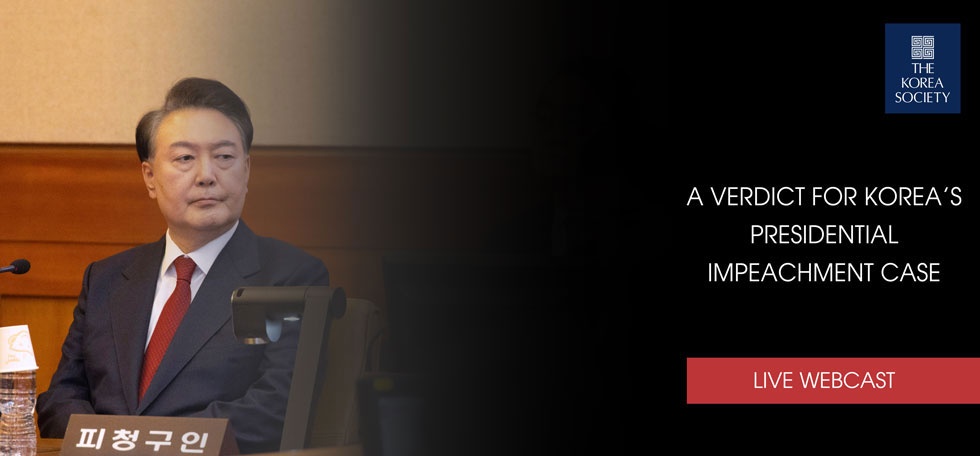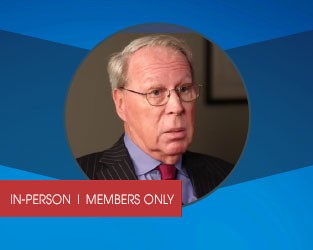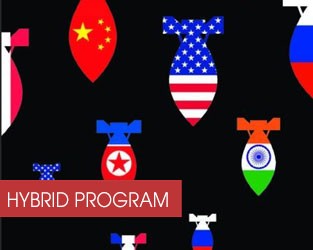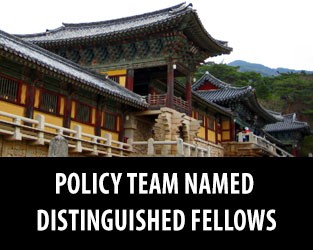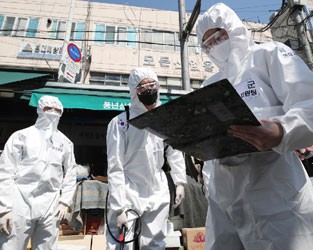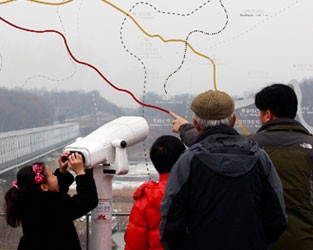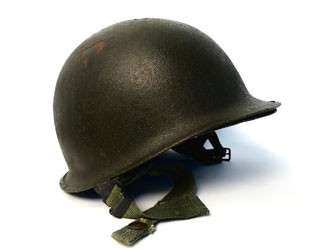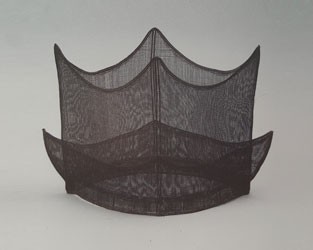Shifting Balance, Forcing Change
with
General (Ret.) Walter “Skip” Sharp, former Commander, UNC/CFC/USFK
Moderated by Dr. Stephen Noerper, Senior Vice President, The Korea Society
DR. STEPHEN NOERPER:
Welcome to The Korea Society and welcome to Studio Korea. I’m Stephen Noerper, senior vice president of The Korea Society. Our special guest today is Gen. Walter "Skip" Sharp. General Sharp who most recently served as commander of the United Nations Command, commander of the ROK-U.S. Combined Forces Command and commander of U.S. Forces Korea. He now serves as a senior analyst, observer and wise counsel. We are delighted to have him at The Korea Society. General, welcome.
I would like to start our discussion by talking about some of the changes occurring in Northeast Asia. We have new administrations in Seoul, Tokyo and Beijing and a second Obama administration in Washington. What do you make of the political shifts taking place and how they will impact Northeast Asia, especially North Korean challenges?
GENERAL WALTER "SKIP" SHARP:
First of all, I wish to thank you and The Korea Society for inviting me here to talk about some of the very important issues facing Northeast Asia today.
I believe the U.S.-Northeast Asia relationship is reaching an inflection point, and how things shape up over the next year or two will most likely affect our relationship over the long term. As you pointed out, new leaders have been elected throughout the region, and these leaders bring with them a fresher set of global goals and strategies for their respective countries. President Xi talks about "the Chinese dream." Prime Minister Abe talks about having "a normal country," with a new constitution and renaming Japan's self-defense force as a military force. President Park talks about "trust politik" and the "Asian paradox”— where Northeast Asian countries are economically interdependent yet at the same time trying to overcome long-term regional animosities.
President Obama is dealing with changes in the top leadership of his administration. As you pointed out, we are pivoting towards Asia; but the long-term goal for all countries is still a work in progress. Then there is Kim Jong Un; a young and inexperienced leader threatening the United States and its allies with rhetoric about developing ballistic missiles and a nuclear weapons capability.
If we are to have any success reshaping interactions and overcoming the many problems North Korea brings to the table; the United States, the Republic of Korea, China and Japan will need to change its policy to one that moves forward—one that addresses human rights, freedom, democracy and hopefully making a change in the most dangerous element, which is North Korea.
STEPHEN NOERPER:
You mention the state of tremendous flux and need for cooperation in the face of some very large problems. Could you share with us your thoughts on the challenges North Korea poses— in particular over the course of the last six months—and how those challenges play out relative to Kim Jong Un's consolidation of leadership?
WALTER SHARP:
There are many parts to this equation. North Korea has the fourth largest military in the world. It has the largest artillery force in the world. Seventy percent of their military is deployed along the Demilitarized Zone. It has over 800 ballistic missiles. There was the sinking of the Cheonan in 2010 that killed several sailors and the attack on Yeonpyeongdo that killed both Marines and civilians. North Korea has conducted three successful nuclear tests. The Taepodong missile put a satellite into space. Kim Jong Un has abrogated the armistice and threatened the United States by saying he wants to become a nuclear weapon-capable power. Although I believe many of these provocations are being made for reasons similar to those of his father; the rhetoric is much louder and his actions far more dangerous than in the past. Why do I believe he is doing this? To get the attention of a variety of audiences.
First off, he wants to convince both the Republic of Korea and the United States that North Korea is so strong that we shouldn't even consider challenging him. Each cycle of provocation is then followed by a request for food and other types of aid. Presidents Lee, Obama and Park have all maintained a strong position, refusing to give aid simply because bad actions by North Korea have temporarily stopped. They insist North Korea clearly shows a move towards denuclearization along with a cessation of all provocative acts. We've been very consistent with this stand for the last five or six years. I believe Kim Jong Un has determined that if he is going to continue provocative actions, they will have to be stronger than in the past. I am convinced they will not work.
The other external audience is China. Kim Jong Un is very concerned about the relationship between North Korea and China. After the recent missile launch and nuclear test, China has been much more forceful in telling North Korea to change its ways, and I believe they could do even more. They could cut off all fuel aid going into North Korea. They have severed some of their banking relationship. Kim Jong Un has to give serious thought as to how the audience in China will respond to his behavior going forward.
Kim Jong Un should be concerned about North Korea's population—its people. In the past, these provocations have always been a means to convince the people of North Korea that they have enemies out there—including the United States and the Republic of Korea—and that in order to face that enemy, North Korea has to have a military-first policy and the people have to makes sacrifices in order to maintain that strong military.
The provocative acts have demonstrated to North Korea's population that they do have a strong military. They can sink a ship or attack an island. Despite those acts, information from the outside world is slowly getting to the population of North Korea through CDs and cell phones. At this point, it's a very minimal amount of information; but I think one of Kim Jong Un's greatest fears is that his people will start to learn more about human rights and freedom. That brings us back to his belief that stronger provocations are necessary in order to coalesce the people of North Korea and to try to maintain control over them.
I believe these challenges combined point to a future in the next several years of even stronger and much more dangerous provocations. It is our job to make sure that, that escalation is controlled.
STEPHEN NOERPER:
North Korea sent Vice Marshall Choe as an emissary or envoy on behalf of Kim Jong Un. He received a polite but restrained response. Chinese analysts and others are suggesting that North Korea has overstepped its bounds with China. Do you have any thoughts on how that will play out? Does this indicate a change in China's desire to provide continued support to North Korea?
WALTER SHARP:
Our hope is that Vice Marshall Choe was told that North Korea has to move towards a path of denuclearization, stop these provocative acts and that there will be even stronger sanctions to come if that isn't the course North Korea wishes to take. I believe cutting off financial resources from the Bank of China made a huge difference, along with China's unwillingness to talk to the leadership of North Korea. We hope that's what he hears when he visits China. My hope is that the United States, the Republic of Korea, Japan, and China start discussions seeking ways to bring about reunification.
President Park is talking about reunification far more [than past South Korean leaders]. Hopefully a dialogue can be started that might help answer questions such as where U.S. troops would be stationed on the Peninsula, how refugees would be taken care of, and how North Korean mineral rights and property rights would be accounted for. My hope is that China will realize that reunification could not only protect their vital national interests but also enhance them. It could remove the nuclear threat from their doorstep. It could also, if done correctly, lessen their concern about having to deal with thousands upon thousands of incoming refugees from North Korea.
I advocate the start of a discussion focused around what the end state of a reunified Peninsula would look like more than in broad terms but really define some of the specifics. If we could develop a clearer vision about the goals and benefits to reunification, we would have a better chance of reaching that end state than we have had in the past.
STEPHEN NOERPER:
That's very compelling in its forward-leaning approach—that we move beyond crisis management. That is the mode we've been in in direct response to therhetoric coming from North Korea. What aspects do you see that would drive China, Japan, Korea and the United States to interact with each other?
WALTER SHARP:
What we've been doing in the past is pushing for gradual change in North Korea but focusing almost entirely on stability. The longer-term focus on stability with hope of gradual change, unfortunately, has given Kim Jong Il and now Kim Jong Un the time to develop nuclear capability and ballistic missile capability. It has allowed them to continue to threaten, attack and kill South Koreans, particularly in 2010. From that perspective, time has been on the side of North Korea. I've come to believe that it's time to force a change in North Korea, and I think more and more countries are beginning to understand this. We cannot allow what is referred to as the status quo to continue. The status quo is not a level playing field because of the increasingly dangerous capabilities North Korea has to do harm to others.
We need to start taking the idea of reunification seriously. It's also time to educate and inform the people of North Korea. I'm not talking about propaganda. I'm talking about educating the population about what freedom is, about what human rights are, and about how much of the world believes in these principles. I recently reviewed the thirty articles of the UN Convention of 1948 that defined human rights. I had a hard time finding even one article that I believe North Korea is observing. There are estimates of over 200,000 prisoners in labor camps. Twenty-five percent of North Korean children have stunted growth because of malnutrition. Well over half the population has no idea where their next meal will come from. These human rights violations are something that really must be dealt with.
The United States, the Republic of Korea and China should develop policies and strategies that will enable us to educate the people of North Korea about freedom and human rights. The military and the leadership need to be educated, as well. This will require much thought and dialogue about the future of a united Korea, including what happens to the military after reunification. It's time to start these talks so that both the people and the military of North Korea understand their options. In order to have the opportunity to talk about reunification, we need to start getting information to the people of North Korea.
From a military perspective, I believe in the [Combined] Counter-Provocation Plan. I'm convinced it will give both Presidents Obama and Park several strong options should Kim Jong Un decide to make another attack similar to that of 2010. Should North Korea perform a similar aggressive action as they did in 2010 (or even launch another ballistic missile) I advocate that the UN consider a Chapter VII, Article 42 resolution allowing a military force to stop a country from violating a resolution by the Security Council.
I believe that combining these elements together will start to force a change in North Korea. We need to continue to try to convince Kim Jong Un that there is another way—that should he stop these actions, the world is ready to help him. Unfortunately, I don't believe he's going to take that option. I do not think we should let another decade pass with only the "hope" that this will change. We need to alter our strategy in order to force change.
STEPHEN NOERPER:
In conclusion, I'd like to talk about your role as honorary chairman of the 60th Anniversary of the Korean War Committee and ask you to say a few words about the 60th anniversary of the armistice and end of the Korean War. I'd also like to hear your thoughts on the U.S.-Korea alliance and the enduring nature of our shared sacrifice.
WALTER SHARP:
A couple of years ago, Congress directed the Department of Defense to create a standing committee whose purpose was to honor Korean War veterans for the 60th anniversary of the end of the Korean War. I was selected as the honorary chairman for that committee and am very grateful to have the opportunity to be a part of this.
The first thing the committee looks to do is honor all of the Korean War veterans, thanking them for their service and their sacrifice to our country. A second goal of the committee is to educate the citizens of the United States (as well as the rest of the world) on the positive impact those sacrifices had for Korea, and to demonstrate how far Korea has been able to come not just economically, but in terms of human rights, democracy and education. None of these things would have happened if it had not been for the sacrifice of our veterans sixty years ago.
The committee, along with a great many supporters, has been going around the country speaking at reunions. There's a wiki site that discusses the history of the Korean War. We're about to have a display commemorated that will be part of the Pentagon Tour. It will document the progress and sacrifices made. There will be many major events, with the final one taking place here in the United States on July 27 of this year—sixty years after the signing of the armistice. The event will be held at the Korean War Memorial on the National Mall in Washington, DC. I invite all Korean War veterans and their family members to join us. We expect between 10,000 and 12,000 veterans, and we'll have some great speakers.
The legacy of Korean War veterans is the ROK-U.S. alliance. From a military perspective, we have a unique relationship that enables us to work well together as military partners. Nowhere else does the United States have as close a military alliance combined against a threat like North Korea as we do with South Korea. Economically, we now have the Free Trade Agreement. Socially, a huge number of students from the Republic of Korea attend school in the United States. It is a truly great alliance as well as a very important alliance in a very important region of the world.
STEPHEN NOERPER:
Those are very wise and wonderful words and we here, at The Korea Society, are very grateful. The Korea Society dates back fifty-six years and was founded by five veterans of the Korean War. I would like to take this opportunity to invite our studio audience, kisteners and viewers for a special commemoration on July 23. We will be transforming our studio into a 1953 set with a vintage radio and the like. We will have veterans present; many will be boarding buses the next day for the events in Washington leading up to July 27.
I would ike to thank our viewers watching this live stream program as well as those who access our programs through YouTube. Please subscribe to our YouTube channel and visit us at koreasociety.org. Thank you, General Sharp, for sharing your time with us today.
[End]
" target="_blank">iTunes
![]() General (Ret.) Walter “Skip” Sharp calls for enhanced international cooperation and coordination to shift the strategic balance in Northeast Asia and force change in North Korea. As Honorary Chair of the 60th Anniversary of the Korean War Commemoration Committee, he reflects on shared sacrifice and upcoming observances to commemorate the end of the War.
General (Ret.) Walter “Skip” Sharp calls for enhanced international cooperation and coordination to shift the strategic balance in Northeast Asia and force change in North Korea. As Honorary Chair of the 60th Anniversary of the Korean War Commemoration Committee, he reflects on shared sacrifice and upcoming observances to commemorate the end of the War.
